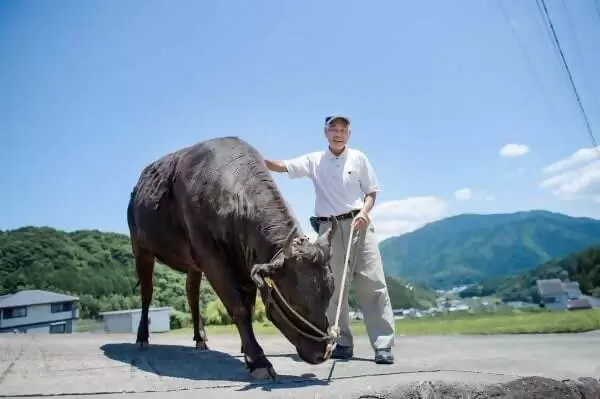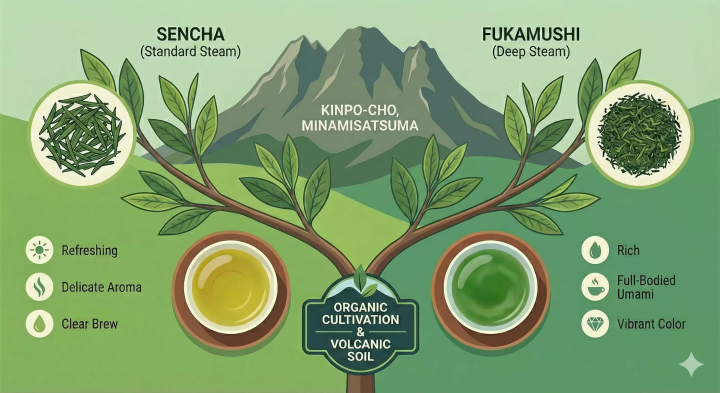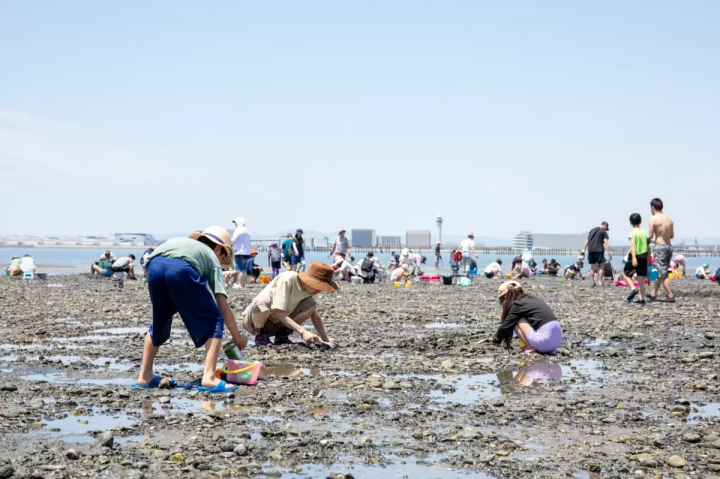First up, the Tono Story House, where you can experience the stories of the Tono region of Iwate Prefecture

Tono City in Iwate Prefecture is known as a city with many folk tales and legends. Why not enjoy the mysterious world of kappa, zashikiwarashi, oshirasama, and tengu at the Tono Story Museum, where you can experience the mystical world through sound and video?
Enjoy the world of "The Tales of Tono"
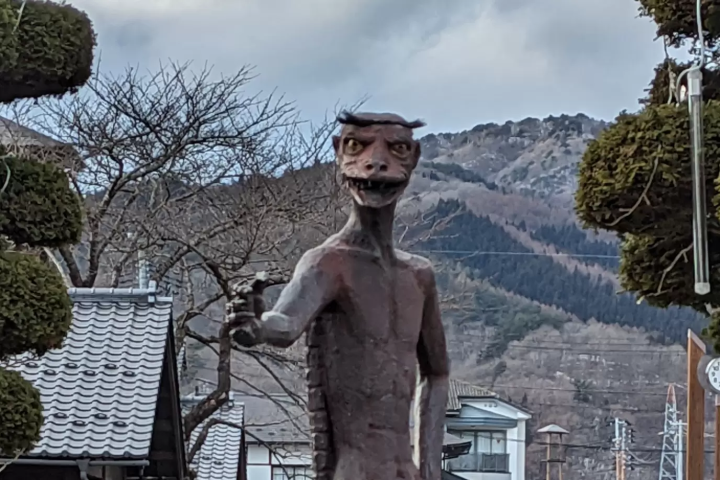
"There are surely countless legends of mountain gods and mountain people in the mountain villages of the country, even more remote than Tono. May these be told and the people of the plains be filled with fear."
The opening sentence of "The Tales of Tono" contains this memorable sentence:
"The Tales of Tono," published by Kunio Yanagita in 1910, is a collection of anecdotes and legends from the Tono region of Iwate Prefecture. Yanagita transcribed and compiled the legends passed down in the Tono region, which were told by Sasaki Kizen (Sasaki Kyoseki), a folklore collector and novelist from the Tono region, and published the work, which is said to be a pioneer of Japanese folklore studies.
Folk tales that have been passed down from parent to child for generations, such as "kappa," "zashiki warashi," "tengu," "oni," and "yamatoko," feature many mysterious and mysterious creatures that could be thought of as monsters, gods, or spirits.
The Tono Monogatari Museum is a place where you can enjoy the mysterious world of Tono, handed down through the generations, through sound and video. This facility can be enjoyed by those who are already familiar with Tono Monogatari, as well as those who have never read it.
"Tono Story House" is an 8-minute walk from Tono Station

The Tono Monogatari Museum is located about an eight-minute walk from Tono Station on the JR Kamaishi Line. This facility, which consists of several buildings, includes the Folktale Warehouse, where you can experience the world of folk tales; the Yanagita Kunio Exhibition Hall, which is a relocated building associated with Yanagita Kunio, the author of the Tono Monogatari; the Tonoza Theatre, where you can enjoy folk tales and local performing arts; and the Tono Tabi Farmers Market, a souvenir shop.
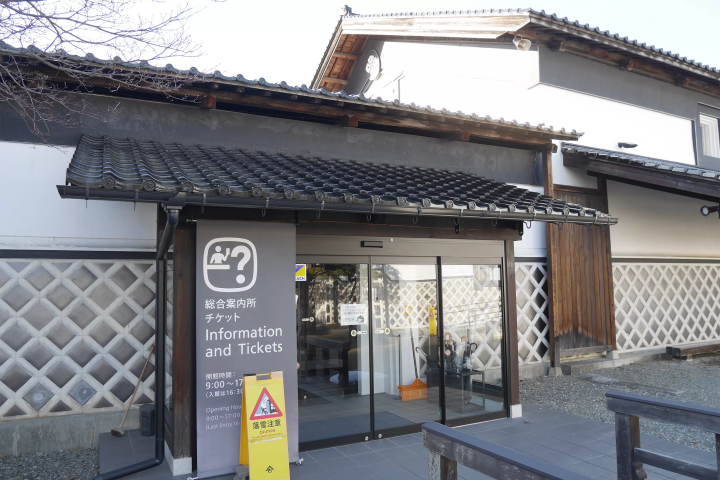
Related facilities include "Ito-ya," a restaurant serving delicious soba noodles, and "Brew Note Tono," where you can enjoy Tono beer, making this a complex that can be enjoyed by people of all ages.
"Mukashibanashigura" is a place where you can enjoy seeing, hearing and touching with sound and video.
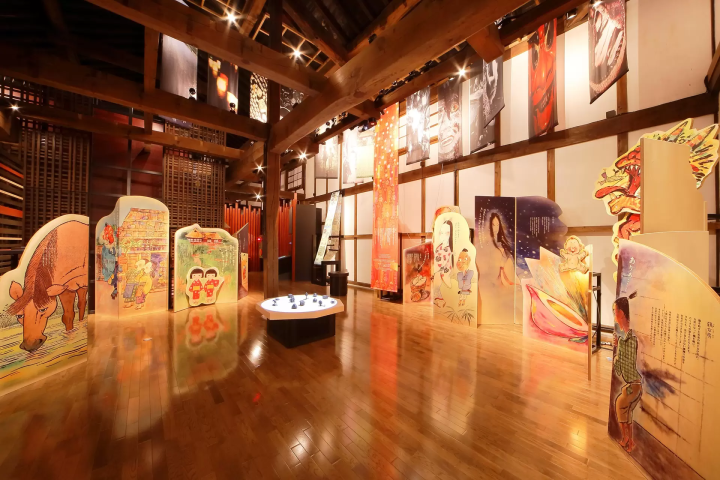
"Mukashibanashigura" is filled with exhibits that make you feel like you've entered the world of stories. Renovated from a former sake brewery, "Mukashibanashigura" is a facility where you can enjoy not only Tono folk tales but also Japanese folk tales visually and physically using sound and video.
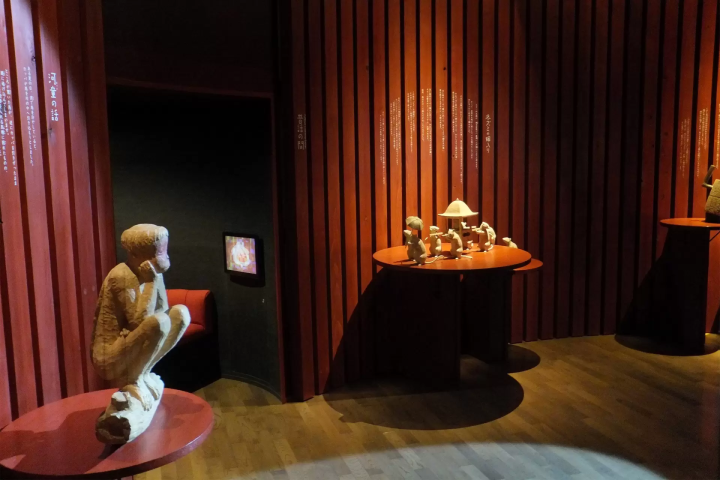
For example, if you touch an ornament placed on a table, a small shadow puppet will appear. Also, as you follow the route, you will hear the sound of children giggling behind you, or the shadow of a Tengu will cross the path accompanied by the sound of flapping wings. There are various other fun features.
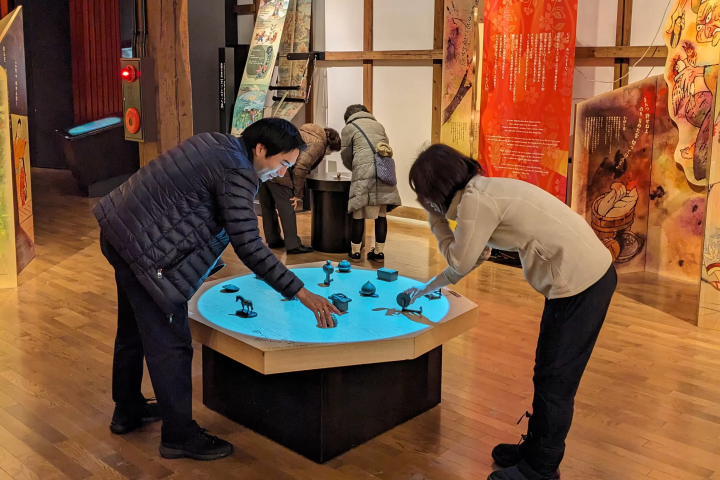
There are many things you can see, hear, and touch in this way, and you can enjoy the world of folk tales while touring the museum. There is also a library corner where you can find books and picture books related to Tono, so you can enjoy the world of stories at your own pace.
The former Takazen Ryokan, Yanagio-shuku, an inn that served as a base for folklore research (Kunio Yanagida Museum)
The building where you are greeted by a statue of Kunio Yanagita is the Takazen Ryokan Ryuojuku, where he stayed regularly while writing "The Tales of Tono."
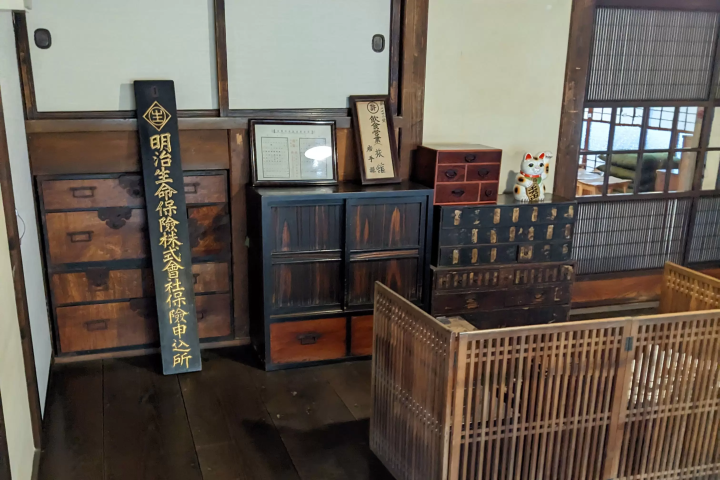
Located in the center of the castle town of Tono, this was a representative inn in Tono at the time, where important people stayed from the Meiji period through to the Showa period.

The inn, which was deeply involved in the creation of "The Tales of Tono," was moved to its current location, and while retaining the charm of the time, the building also introduces the life of Yanagita Kunio and his footprints in Tono.
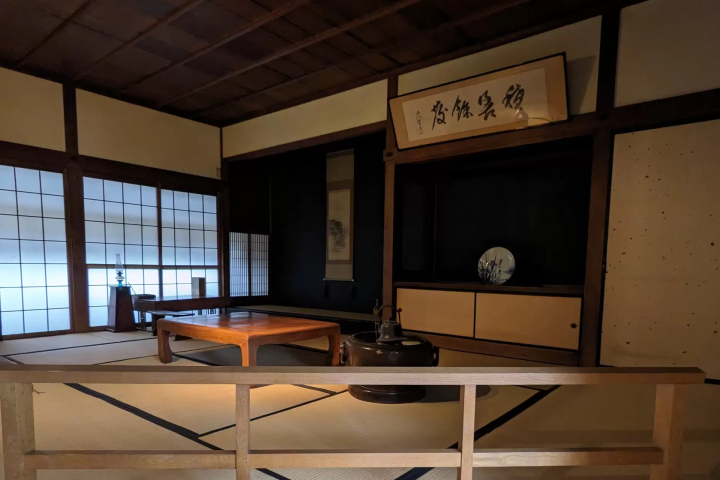
Guests who stayed in the guest rooms on the second floor included Yanagita, Orikuchi Shinobu, a Japanese folklorist, scholar of Japanese literature, and poet, and Nikolai Nevsky, a Russian linguist who came to Japan during the Taisho era and was friends with Yanagita, and the hotel became a base for folklore research.
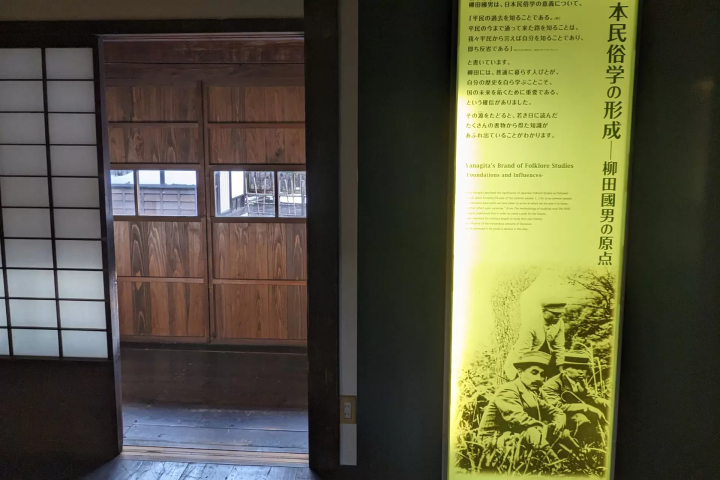
This building, which retains its original appearance, has been designated a registered tangible cultural property by the country.
The former Yanagita Kunio Retirement Home where Yanagita and his wife spent their final years
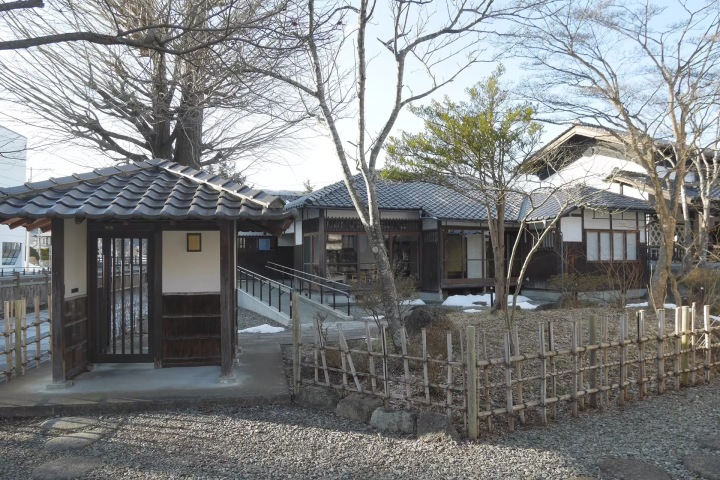
This is the residence where Kunio Yanagita lived with his wife Taka from January 16, 1956 (Meiji 31) until his death on August 8, 1962 (Showa 37) at the age of 88.
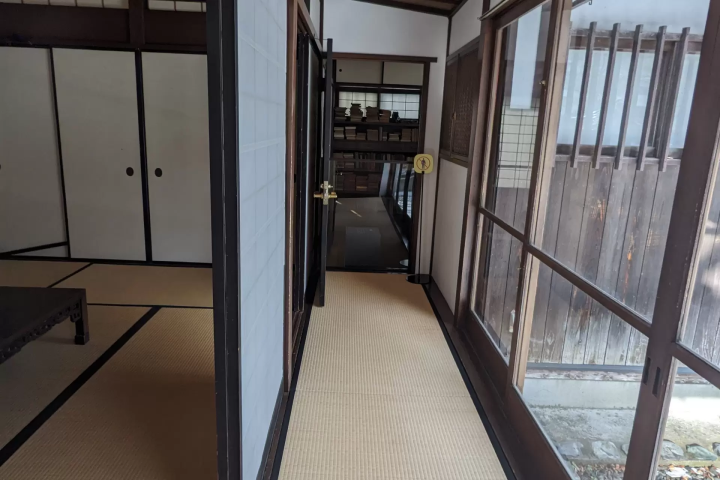
It was relocated from Seijo, Setagaya Ward, Tokyo.

Inside the elegant building, decorated with decorations that Yanagita Kunio liked during his lifetime, Yanagita's achievements and writings are on display.
Tonoza Theatre: Listen to old tales told in the local dialect by Tono storytellers
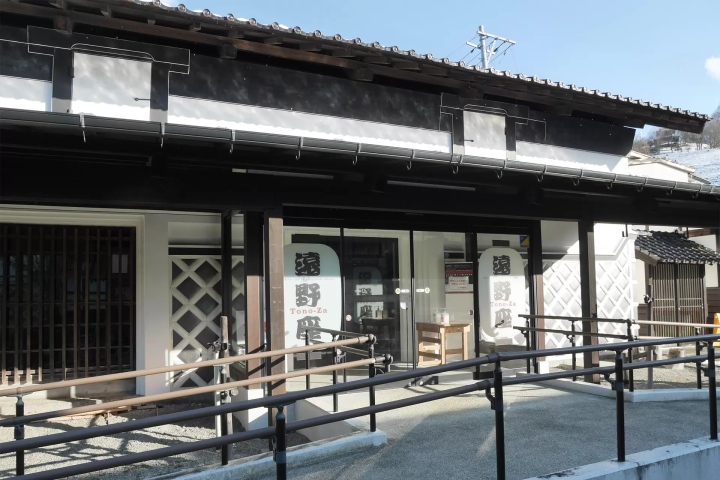
The admission fee to the Tono Monogatari Museum includes the ability to listen to storytellers tell folk tales at the Tonoza Theatre, located across from the Folktale Storehouse.
A Tono folktale that begins with "Mukashi, Atarazumo naa" and ends with "Dondohare." In a 20-minute performance by a storyteller from the Tono Folktale Storytellers Association, you can hear 3 to 5 folktales from the Tono region, such as "Oshirasama" and "Zashikiwarashi."
The fairy tale performances are held every day, and the storytellers and the fairy tales being told vary from time to time, but the fairy tales told in the traditional Tono dialect are very warm and inviting.
No reservations are required; you can participate by simply registering at Mukashibanagura on the day, so please come and listen to the folk tales told in the Tono dialect.
- Performance times: April to November (3 times per day) 11:00, 13:00, 14:00
August 1st to August 31st (5 times per day) 10:00, 11:00, 13:00, 14:00, 15:00
December to March (Saturdays, Sundays, and holidays only) (Once a day) 13:00
- Closed: Every Tuesday, New Year's holidays (December 29th to January 3rd)
*Fairy tales will not be held on days when the "Tono Monogatari no Yakata" is closed.
- Inquiries: 0198-62-7887
If you're looking for souvenirs from Tono, come to "Tabi no Sanchi Daisetsu"
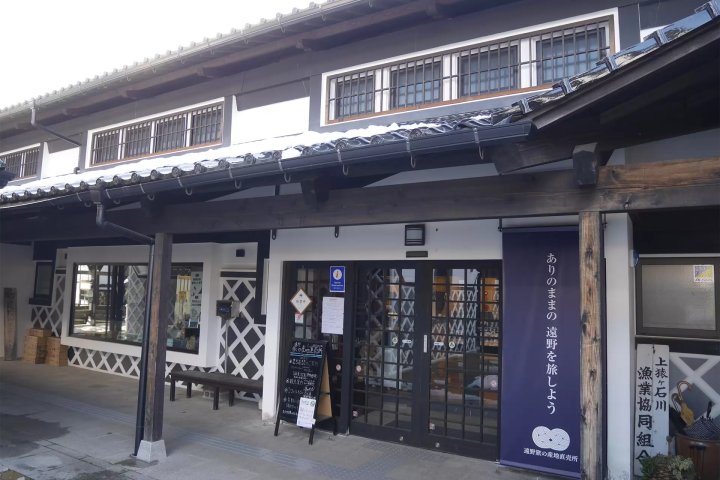
At the Travel Direct Sales Store, we stock a selection of special Tono souvenirs, including Tono's famous sweets "Akegarasu" and "Kawataro Senbei," as well as handmade accessories made by local farmers and shopkeepers.
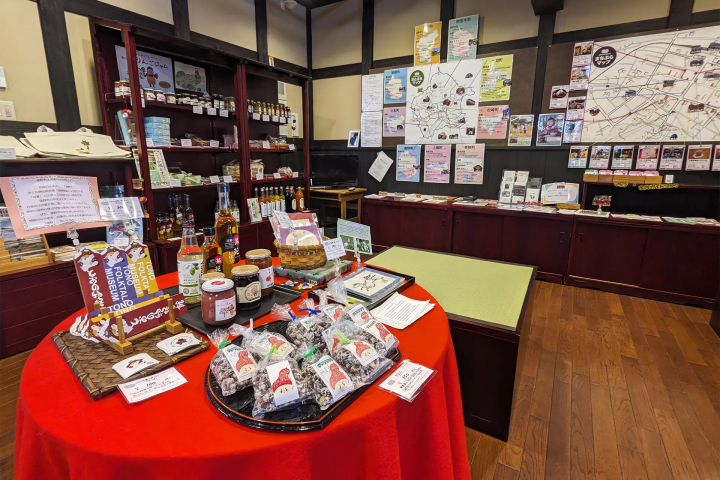
Of course, if you are looking for original merchandise from the Tono Monogatari Museum, you can purchase them at the reception desk or at the Travel Produce Direct Sales Store.
The Travel Farm Direct Sales Center also arranges sightseeing tours and private lodgings. Popular tours include the "Machibura" walking tour of Tono, the "Satobura" tour where you can enjoy activities such as cycling, and the experience of staying at a farm inn.
In addition to local products, tours are also available that allow you to have experiences unique to this area, so why not feel free to contact Tabi Sanchoku for more information?
- Business hours: 9:30-16:00
- Inquiries: 0198-62-6001
Related Facilities
Bangari Itoya Restaurant
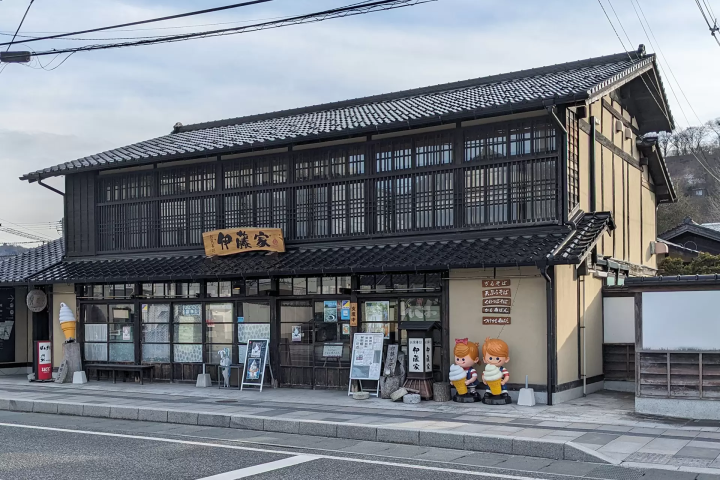
This soba restaurant is housed in a typical Tono merchant's house. Inside, you'll find a historical Shinto altar and a traditional Japanese house, giving the restaurant a charming feel.
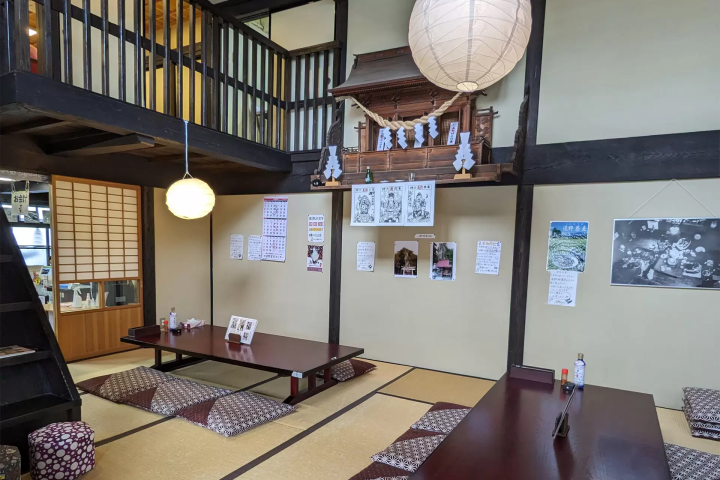
In addition to soba noodles, sushi and tempura are also popular.
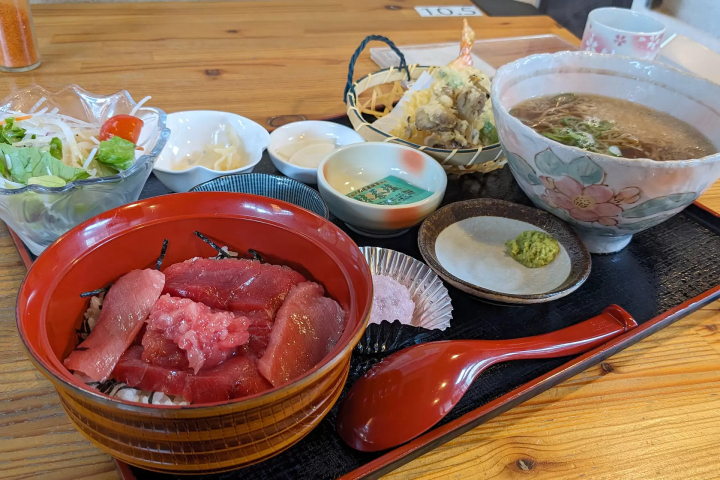
They also accept reservations and group bookings, so please feel free to contact them. For reservations and group bookings, please call the number below.
- Closed: Tuesdays
- Opening hours: 11:00 - until sold out
- Inquiries: 0198-60-1110
Brew Note Tono
Tono is one of Japan's leading hop producing regions. This cafe is run by the owner, who is affectionately known as the "Hop Doctor" in Tono. This stylish cafe is set in an old-fashioned storehouse, where you can enjoy Tono's local beer and jazz.
- Open only on weekends and holidays
- Business hours: 11:00-18:00
- Inquiries: 080-5099-1791
Tono Castle Town Museum (reservations required)
This museum, which displays the costumes and weapons of the Tono Nanbu clan that have been around since the Sengoku period, is small but worth a visit. You can visit it with a combined admission ticket to the Tono Story Museum, but you must make a reservation at least two days in advance.
- Reservation contact: 0198-62-7887
Basic information about Tono Monogatari Museum
All three locations - Mukashigakura, Tonoza Theatre, and Yanagita Kunio Museum - can be visited for the same admission fee to the Tono Story House. The tour takes about an hour and a half, including the folktale experience. Tono is dotted with spots related to folklore, such as Kappa Pond, where kappa have been spotted, so sightseeing by car is convenient.
- Address: 2-11 Chuodori, Tono City, Iwate Prefecture
- Phone number: 0198-62-7887
- Access: Approximately 8 minutes on foot from Tono Station on the JR Kamaishi Line, 10 minutes by car from Tono IC on the Kamaishi Expressway, parking available (40 spaces)
- Business hours: 9:00-17:00 (last admission 16:30)
- Closed: April to May: Open every day; June to October: First Tuesday of every month; November to March: Every Tuesday; New Year's holiday: (12/29 to 1/3)
- Admission fee: Adults 510 yen / High school students and younger 210 yen (same price for both "Tono Story House" and "Tono Castle Town Museum")
This information is current as of March 2024. Please check the official website for the latest information.
We are a regional trading company responsible for promoting local products and revitalizing tourism in Tono City, Iwate Prefecture. Tono is home to numerous legends about kappa and zashiki warashi, and is also home to an abundance of agricultural and livestock products that take advantage of its location in a basin, with one of the largest production volumes of hops used in beer in Japan. I'm proud. By interweaving Tono's people, goods, history and culture, we aim to create value unique to the region, refine the Tono brand, and revitalize the region.
The contents on this page may partially contain automatic translation.



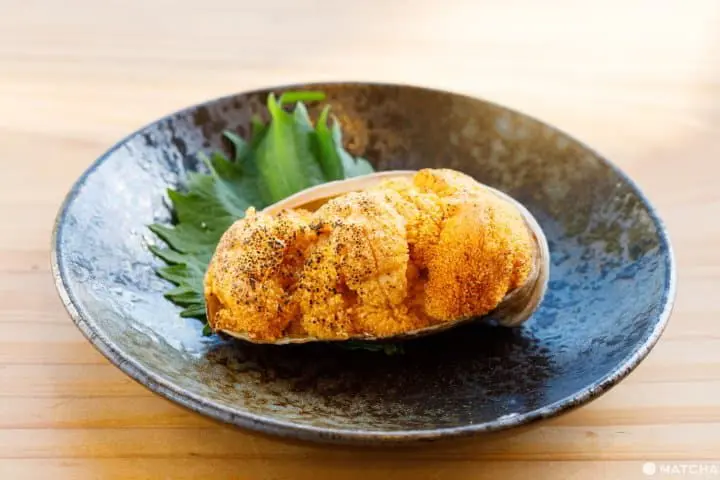



























![[Kagoshima] Overcoming 12 Years of Hardship: Walking through Minamisatsuma City, the sacred land where the monk Ganjin landed](https://resources.matcha-jp.com/resize/720x2000/2026/02/21-259481.webp)
